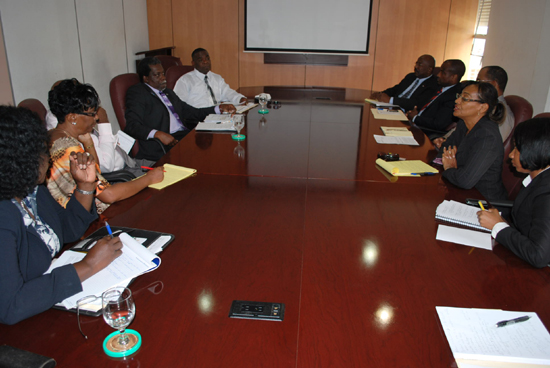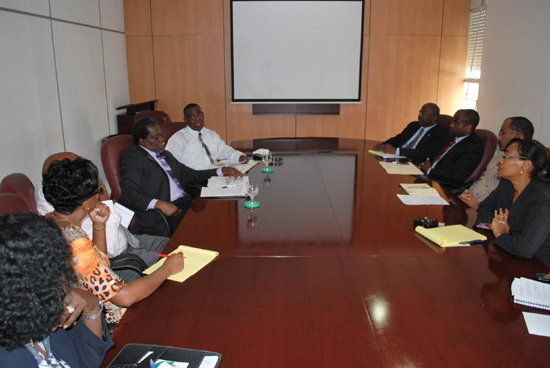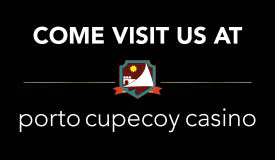 GREAT BAY (GIS)—Commissioner of Education and Constitutional Affairs William Marlin and Commissioner of Finance and Human Resources, Xavier Blackman met with two representative of United Nations Educational, Scientific, and Cultural Organization (UNESCO) organization to discuss:
GREAT BAY (GIS)—Commissioner of Education and Constitutional Affairs William Marlin and Commissioner of Finance and Human Resources, Xavier Blackman met with two representative of United Nations Educational, Scientific, and Cultural Organization (UNESCO) organization to discuss:
1. Responsibilities of Member States towards their National Commissions, as outlined in the UNESCO Constitution, the Charter of National Commissions for UNESCO and other legal documents.
2. Status of National Commissions (legal position and relations vis-à-vis government authorities (e.g. autonomous, semi-autonomous, governmental), ministries, and permanent delegations).
3. Involvement of St. Maarten in the 35th Session of the General conference (October 6-23, 2009).
Secretary General of the St. Kitts and Nevis National Commission for UNESCO, Mr. Antonio Maynard, and Secretary General of the Jamaica National Commission for UNESCO, Mr. Everton Hannam was on hand to present detailed information on how to become a member state of the UNESCO organization.
These two individuals form part of the Working Group and were invited by Sector Education to consult and advise the relevant Government officials on the best arrangements to make the National Commission an efficient and dynamic entity within the new country St. Maarten.
The United Nations Educational, Scientific, and Cultural Organization (UNESCO) are a specialized agency of the United Nations established on 16 November 1945. Its stated purpose is to contribute to peace and security by promoting international collaboration through education, science, and culture in order to further universal respect for justice, the rule of law, and the human rights and fundamental freedoms proclaimed in the UN Charter.
UNESCO has 193 Member States and six Associate Members. The organization is based in Paris, with over 50 field offices and many specialized institutes and centers throughout the world. Most of the field offices are "cluster" offices covering three or more countries; there are also national and regional offices. UNESCO pursues its objectives through five major programmes: education, natural sciences, social, and human sciences, culture, and communication and information.
Projects sponsored by UNESCO include literacy, technical, and teacher-training programmes; international science programmes; the promotion of independent media and freedom of the press; regional and cultural history projects, the promotion of cultural diversity; international cooperation agreements to secure the world cultural and natural heritage (World Heritage Sites) and to preserve human rights; and attempts to bridge the worldwide digital divide.
Present at the meeting were Dorothy Lake, Advisor to Commissioner W. Marlin, Claudette Labega –Forsythe, Sector Director of Education, Louis Brown, Sector Director Management Support, Neville York, Head of Culture Department, Patricia Lourens, Head of DERPI, and Khalilah Peters, Policy Worker.
The meeting came about as a follow-up from a March of this year. The Chairperson and Workgroup for the Ministry of Education, Culture, Sports, and Youth Affairs met with Kwame Boafo, Head of the UNESCO’s Caribbean Cluster Office. In his discussions with the Workgroup, Mr. Boafo committed to assist St. Maarten with building its own National Commission for UNESCO by including St. Maarten in their National Commission capacity building training programs.
As a follow-up to this promise, the Caribbean Cluster Office offered the Government of St. Maarten assistance from the Working Group on Strengthening of National Commissions in the Caribbean Sub-Region.
As St. Maarten undergoes its new constitutional change process to become a Country within the Kingdom of the Netherlands, it is most essential that the Government of St. Maarten start to forge, promote, and strengthen its alliances with regional and international organizations.
 The Central Government of the Netherlands Antilles is transferring tasks and responsibilities to the Island Territories of St. Maarten and Curacao.
The Central Government of the Netherlands Antilles is transferring tasks and responsibilities to the Island Territories of St. Maarten and Curacao.
The dismantling process in essence means dissolution of Dutch Antillean membership in regional and international organizations and hence it is important for St. Maarten to begin its relations with important regional and international organizations such as UNESCO.
In order to optimally make use of projects, programs and resources of UNESCO, the Government of St. Maarten will not only be required to apply for associate membership but also start with the preparations in establishing a National Commission for UNESCO (NATCOM).
A NATCOM by definition is a national cooperating body established by the Member States for associating their governmental and non-governmental bodies with the work of UNESCO. The National Commission is the main agency to implement UNESCO’s work at Country level and source funding for projects.













